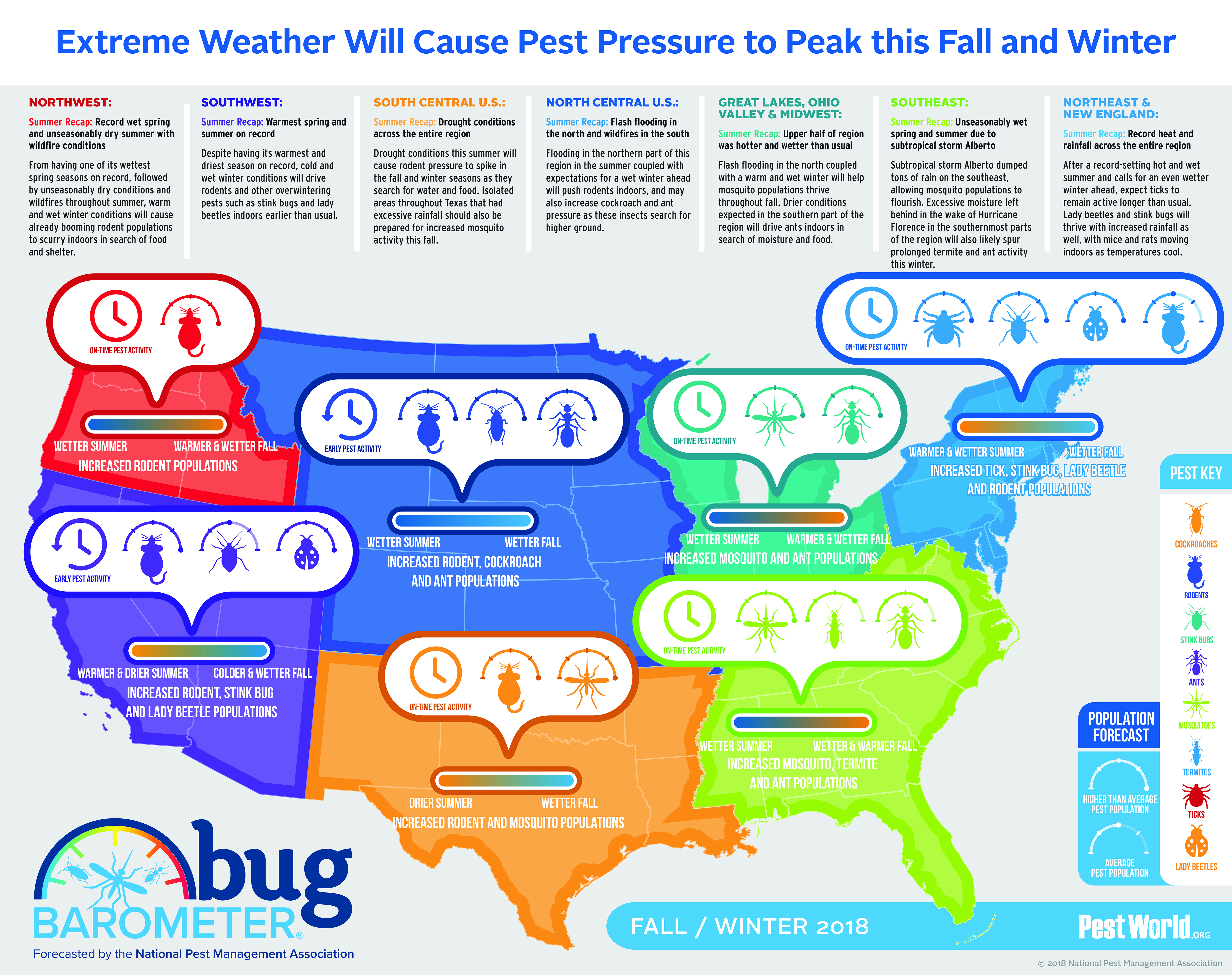Exploring Advanced Techniques Used By Bug Monitoring Professionals
Exploring Advanced Techniques Used By Bug Monitoring Professionals
Blog Article
Write-Up By-Thiesen Paaske
Are you tired of depending only on sprays to take care of bugs in your home or workplace? While sprays can be effective, pest control professionals have created innovative strategies that surpass simply spraying chemicals.
These methods not just supply more efficient and resilient options, however additionally concentrate on reducing using dangerous chemicals. By discovering these sophisticated methods, you will uncover an entire new globe of parasite control methods that are not only reliable, but likewise eco-friendly.
So, are you prepared to take your parasite control video game to the next level?
Integrated Pest Monitoring (IPM)
If you're looking for an efficient and environmentally-friendly strategy to pest control, Integrated Bug Administration (IPM) is the solution you require. IPM concentrates on lasting prevention and management of insects, instead of just depending on pesticides. This method considers the certain requirements and actions of bugs, as well as the surrounding setting.
By using a combination of techniques such as organic control, habitat control, and targeted pesticide use, IPM aims to reduce the reliance on chemical therapies and lessen harm to non-target microorganisms.
visit our website of IPM is checking and recognizing pests properly. This includes regularly checking and assessing the pest populace, as well as identifying the specific varieties present. By comprehending the biology and actions of parasites, insect control specialists can develop targeted strategies to disrupt their life process and lower their numbers.
An additional crucial element of IPM is utilizing non-chemical control methods whenever feasible. This can include physical barriers, such as mounting displays or securing fractures and holes, to prevent insects from going into structures. In addition, cultural practices, like correct hygiene and waste monitoring, can aid eliminate insect food resources and reproducing premises.
When chemicals are required, IPM focuses on using them judiciously and as a last hope. This suggests choosing the least harmful and most effective alternative, applying it exactly and only to impacted areas, and complying with all safety guidelines. By decreasing pesticide use, IPM minimizes the possible dangers to human wellness and the setting.
Biological Control
To further enhance the efficiency of Integrated Insect Management (IPM), the following subtopic we'll check out is the approach of biological control. This method uses all-natural predators or bloodsuckers to control bugs.
Here are four vital elements of organic control:.
1. Introduction of all-natural enemies: In this method, valuable pests or microorganisms are introduced to the location plagued with parasites. These natural opponents prey on the parasites, assisting to decrease their population.
2. Preservation of all-natural opponents: Instead of presenting new microorganisms, this approach concentrates on producing a suitable environment for existing valuable pests. This can be achieved through offering food, sanctuary, and water sources.
3. Augmentation: Here, the number of all-natural opponents is raised artificially by reproducing and releasing them right into the ravaged area. This aids to swiftly minimize the pest population.
4. Push-pull approach: This method combines repellents and attractants to control the actions of insects. Repellents press parasites far from plants, while attractants entice them in the direction of catch plants or areas where they can be quickly managed.
Environment Alteration
Habitat alteration plays an essential function in parasite control by modifying the setting to prevent insect invasions. By making changes to the physical qualities of a space, you can create an unwelcoming atmosphere for parasites, making it harder for them to endure and prosper.
One typical technique of habitat adjustment is eliminating or lowering potential food resources for pests. This can include proper waste monitoring, sealing containers, and cleaning up food crumbs.
In addition, getting rid of or reducing locations of standing water can aid control bugs like mosquitoes.
Changing the landscape by trimming trees and shrubs far from structures can likewise stop parasites from accessing your home.
Verdict.
So there you have it - the sophisticated strategies made use of by insect control specialists go beyond just spraying chemicals. Integrated Parasite Administration (IPM) incorporates numerous techniques to efficiently regulate bugs, while organic control takes advantage of natural adversaries to maintain bug populations in check.
Habitat modification additionally plays a crucial role in avoiding pest problems.
Did you recognize that according to a research study, carrying out IPM methods minimized chemical usage by approximately 71%? This not only protects our health and wellness and the setting but likewise saves cash over time.
